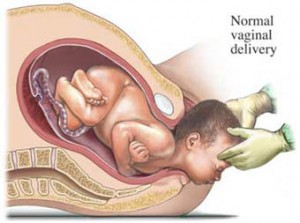A recent article in the British Journal of Medicine on Jan. 18, 2003 (BMJ 2003;326:137) is about a retrospective risk analysis of two groups of full-term delivered newborns that were delivered at a Dublin (Ireland) University Hospital. The delivery records of 4070 male and 4005 female newborns between 1997 and 2000 were analyzed. Dr. Maeve A. Eogan said that the team noted significantly more Cesarean section rates due to more frequent fetal distress in males. There were more forceps deliveries with males and drugs to induce labor had to be used more often in males as well.
One known factor is the that males have a higher birth weight as well as larger heads compared to their female counterparts. But the investigators are looking for further explanations of why males seem to be more prone to distress during deliveries than females. There may be a genetic component that may also play a role, but more investigations are needed to find out why this would be so. In the meantime doctors have to play it safe and watch both mother and the baby about to be born and make sure that there is a good outcome.
This means monitoring the fetal heart rate to check on the baby and monitoring the mother with regard to progress of labor. In case of problems it usually means a Cesarean section or induced labor, both of which are procedures that are associated with potentail complications.
Last edited December 10, 2012






